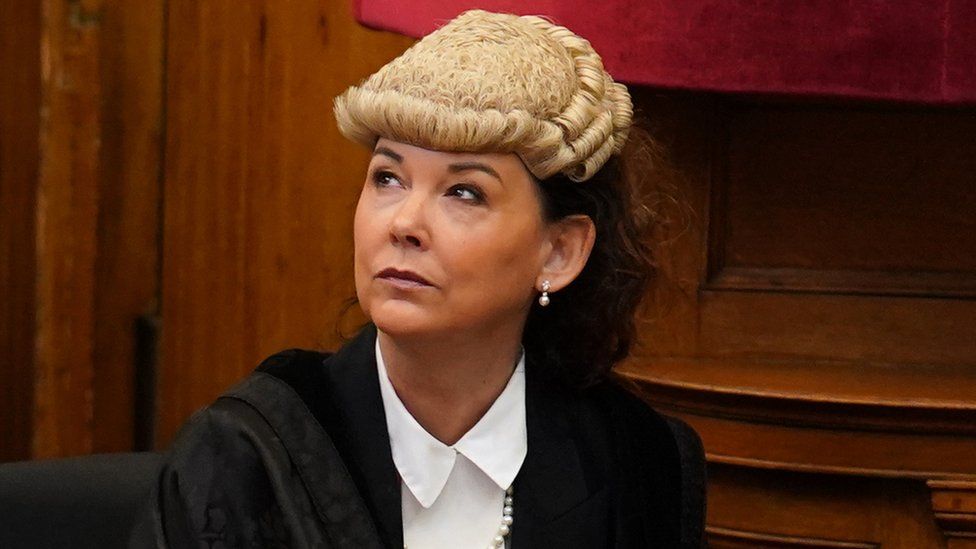
Lord Advocate Dorothy Bain KC has ordered a review to ensure the method is being used appropriately
Scotland’s top law officer has ordered a review of how diversion from prosecution is used in sex crime cases.
The process involves referring alleged offenders to social work for support or treatment rather than trying them in court.
It aims to address the underlying causes of the offending and prevent further criminality.
Lord Advocate Dorothy Bain KC said she wanted to ensure the method was being used appropriately.
Diversion from prosecution is considered as an option by prosecutors when the alleged offender has an identifiable need that has contributed to the offending.
It is also used where it is assessed there is enough evidence and that diversion is the most appropriate outcome in the public interest.
The Crown Office and Procurator Fiscal Service (COPFS) said that the use of diversion is guided by the Scottish Prosecution Code.
Its use for offenders under 18 is also in keeping with obligations to children in terms of the UN Convention on the Rights of the Child (UNCRC).
Image source, PA Media
The review will look specially at how diversion is used in rape cases
The Lord Advocate said: “Sexual offences are among the most difficult cases prosecutors deal with.
“I am acutely aware of the trauma experienced by victims and their loved ones. As public prosecutors, we are trusted to make appropriate decisions and must uphold the trust placed in us.”
Ms Bain said diversion could be “an appropriate intervention to prevent perpetrators re-offending” and emphasised that addressing needs which have contributed to offending behaviour was in the interest of the wider community.
She added: “Such intervention can be particularly effective in cases of children’s offending, changing the direction of young lives for the better.”
Ms Bain pledged that the review would engage with victims and listen closely to their views, as well as those of partners across the criminal justice system.
Sandy Brindley, of Rape Crisis Scotland, has welcomed the review
A review of diversion from prosecution published in February found that it was working well and was developing in a positive direction.
The number of diversion from prosecution cases started rose by 20% between 2020/21 and 2021/22 to 2,700 – the highest level in the last decade.
The most likely people to get diversion from prosecution, as a proportion of the overall population, were those aged 16 to 17.
The review comes after pressure from a number of victims.
‘Kick in the teeth’
One teenage girl told the Sunday Mail newspaper her alleged rapist avoided a trial and possible criminal conviction, and instead received “therapy and meetings with social services”.
She said the decision didn’t “seem like justice” and added it felt like a “complete kick in the teeth”.
Sandy Brindley, chief executive of Rape Crisis Scotland, welcomed the review.
She told BBC Radio’s Scotland’s Drivetime programme: “My concern is that often in these cases there is two children, there is the perpetrator or the alleged perpetrator and the young woman who has made the complaint, a very serious complaint of rape.
“I think up until now in these cases what we’re seeing is the needs of these young women completely sacrificed in the interest of the rehabilitation of the perpetrator, and that’s not ok.”








